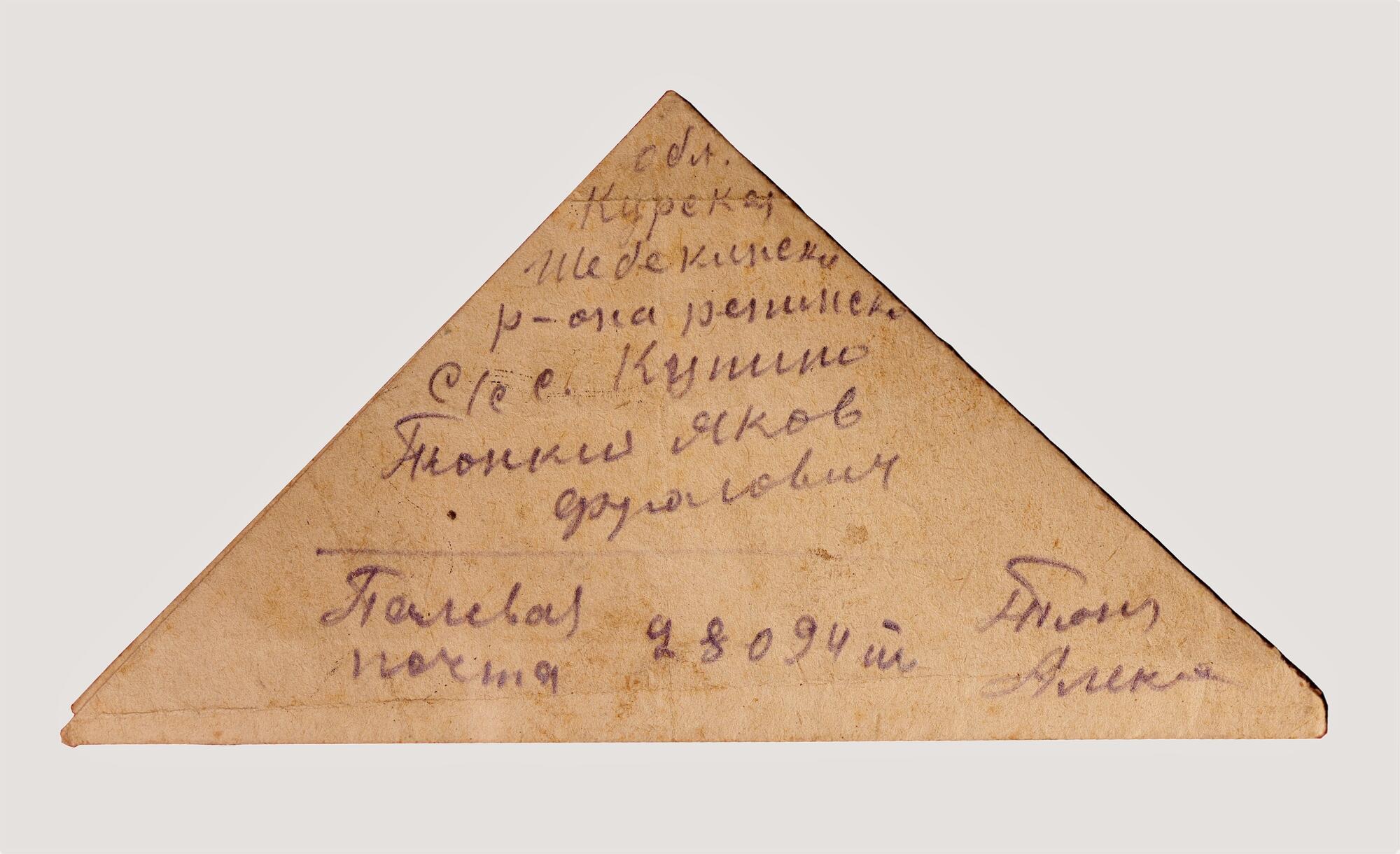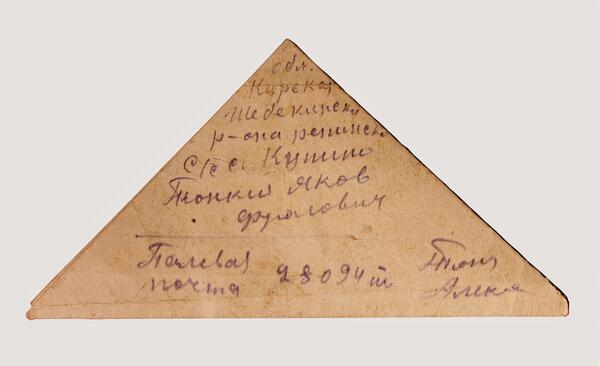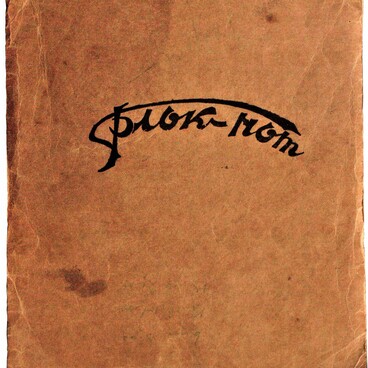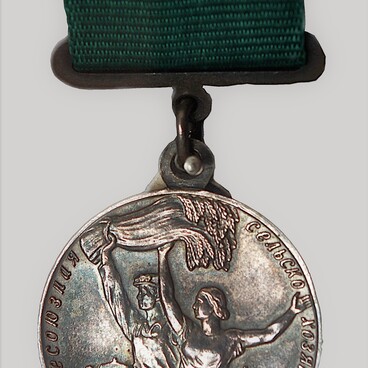In November 1944, the Red Army soldier Alexey Tonkikh sent it to his parents, who lived in the village of Kupino, Shebekino district. Tonkikh served as a squad leader in the 936th Rifle Regiment of the 254th Rifle Division.
The award that Tonkikh mentioned in the letter is the medal “For Valor”. In August 1944, the division where the author served participated in Jassko–Kishinevsky offensive. The Soviet troops conducted the most severe battles, preventing German forces from breaking out of their encircled position. Together with his comrades Tonkikh defeated the attack of the Germans and killed two Nazi soldiers himself; therefore, he got a medal.
The letter from the front arrived in Kupino on New Year’s Eve. The residents recollected that the front “triangular letter” they read by the whole village and were happy that Alexey Tonkikh was alive. The parents received congratulations on their son’s award; he was only 19 years old at the time.
However, in another two months, a death notice arrived in the village. Tonkikh was killed on February 1, 1945, near Peiskerwitz in Poland.
At that time, the 254th rifle division, in which the Red Army soldier served, was on the offensive on the city of Breslau. In a fortnight of continuous combats, they reached the Oder River. The river crossing was posing a mortal threat; there was nowhere to hide from enemy fire. The riverbanks were icy, there were practically no trees and the water was ice cold.
Nevertheless, the division withstood the attack and waited until the reinforcements came. Alexey Tonkikh was among the soldiers fatally wounded on the riverbank. His regiment went further to the west, to the Berlin, and the soldier was buried in a mass grave not far from the place of his death.
In addition to Tonkikh’s letter, the collection of the Shebekino Museum houses a picture of his parents. It depicts two elderly people in the garden, with an apple tree behind them, which their son planted in 1941, before he went off to war. Tonkikh’s mother is pictured holding a portrait of the hero.
The award that Tonkikh mentioned in the letter is the medal “For Valor”. In August 1944, the division where the author served participated in Jassko–Kishinevsky offensive. The Soviet troops conducted the most severe battles, preventing German forces from breaking out of their encircled position. Together with his comrades Tonkikh defeated the attack of the Germans and killed two Nazi soldiers himself; therefore, he got a medal.
The letter from the front arrived in Kupino on New Year’s Eve. The residents recollected that the front “triangular letter” they read by the whole village and were happy that Alexey Tonkikh was alive. The parents received congratulations on their son’s award; he was only 19 years old at the time.
However, in another two months, a death notice arrived in the village. Tonkikh was killed on February 1, 1945, near Peiskerwitz in Poland.
At that time, the 254th rifle division, in which the Red Army soldier served, was on the offensive on the city of Breslau. In a fortnight of continuous combats, they reached the Oder River. The river crossing was posing a mortal threat; there was nowhere to hide from enemy fire. The riverbanks were icy, there were practically no trees and the water was ice cold.
Nevertheless, the division withstood the attack and waited until the reinforcements came. Alexey Tonkikh was among the soldiers fatally wounded on the riverbank. His regiment went further to the west, to the Berlin, and the soldier was buried in a mass grave not far from the place of his death.
In addition to Tonkikh’s letter, the collection of the Shebekino Museum houses a picture of his parents. It depicts two elderly people in the garden, with an apple tree behind them, which their son planted in 1941, before he went off to war. Tonkikh’s mother is pictured holding a portrait of the hero.



